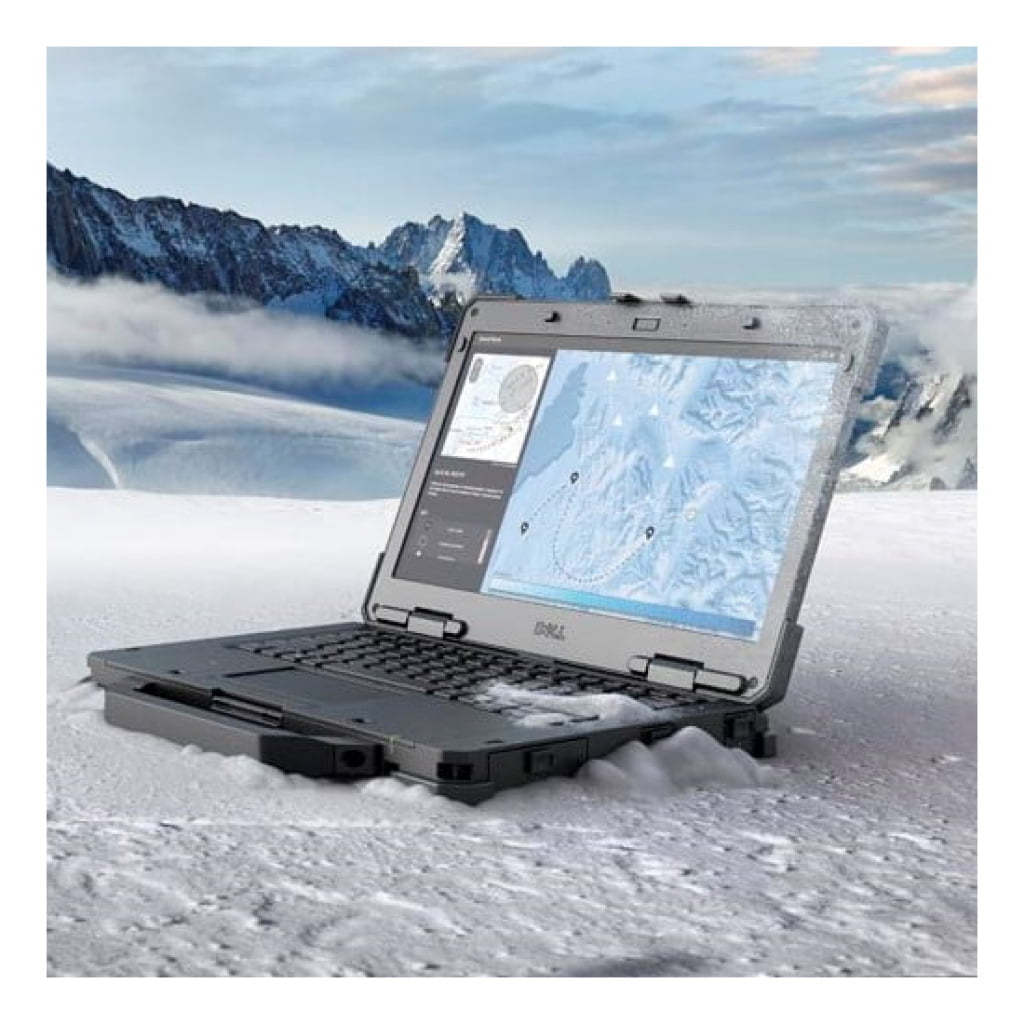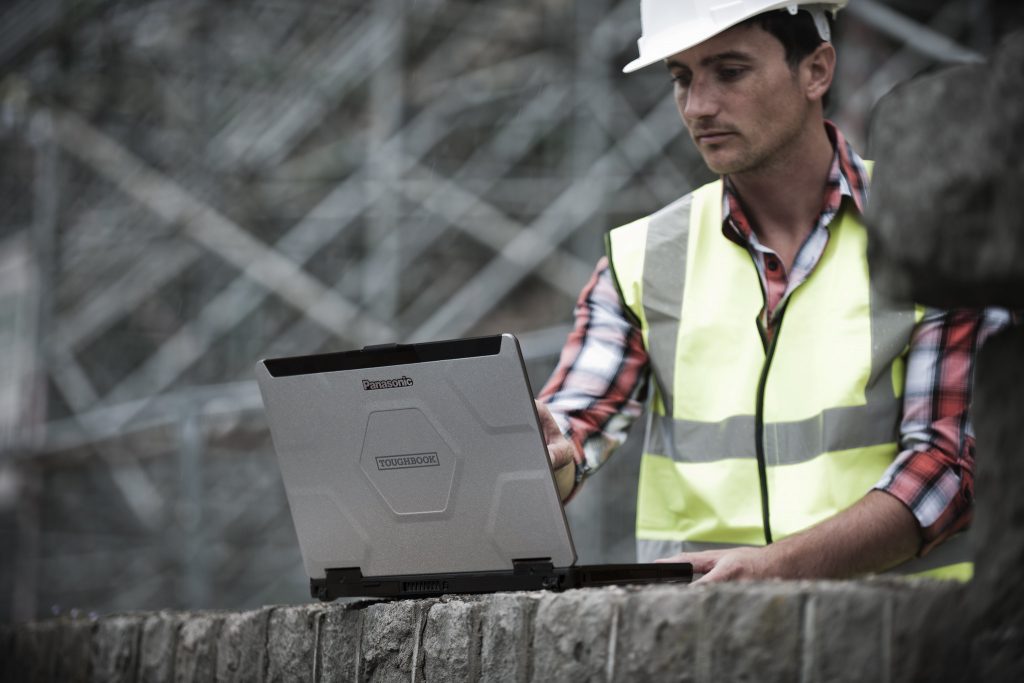Introduction to Heavy Duty Laptops: Defining Ruggedness
When it comes to heavy duty laptops, the term ‘ruggedness’ defines their ability to withstand harsh conditions which would otherwise jeopardize the functionality of standard laptops. Designed for durability, these rugged laptops are typically encased in strong, often military-grade materials, allowing them to resist:
- Drops from significant heights
- Extreme temperatures, both hot and cold
- Dust, sand, and other fine particulate exposure
- Spills and exposure to various liquids
- Vibrations from vehicles or industrial machinery
Rugged laptops cater to users in demanding environments, such as fieldwork in construction, military operations, oil and gas exploration, and outdoor scientific research. The essence of ruggedness lies in the laptop’s enhanced survivability and reliability in challenging conditions.
The Evolution of Rugged Laptops: A Historical Perspective
Rugged laptops’ genesis traces back to stringent military demands for durable field-use computers. These early models were bulky, heavy, and offered minimal performance. The 1990s saw the commercialization of rugged computing, with companies like Panasonic introducing Toughbook—a milestone in combining durability with user-friendliness. The 2000s brought about significant advancements in materials and technology, making rugged laptops lighter, faster, and more resilient. Today, they incorporate state-of-the-art components and comply with tough standards like MIL-STD-810 and IP ratings, serving a broad array of industries beyond the military.
Key Components that Define a Heavy Duty Laptop
Heavy duty laptops are engineered to withstand harsh conditions and heavy use. Key components include:
- Reinforced Chassis: A sturdy frame that can handle drops and shocks.
- Protective Sealing: Seals that prevent the intrusion of dust, water, and other contaminants.
- Durability Standards Compliance: Adherence to military-grade testing standards like MIL-STD-810G.
- High-Performance Internals: Components built to work under extreme temperatures or other stressful conditions.
- Sunlight Readable Displays: Screens with anti-glare coatings and adjustable brightness for use in direct sunlight.
- Extended Battery Life: Batteries that provide long hours of usage even in remote locations.
- Integrated Data Protection: Sophisticated security measures, including hardware encryption and biometric access.
These features collectively translate to a device that thrives in challenging environments.

Materials and Design: The Build of Rugged Laptops
Rugged laptops are tailored for durability and functionality in harsh environments. Manufacturers use high-grade materials like magnesium alloy for the chassis, which provides strength without excess weight. External port covers and shock-absorbing materials are also vital, as they mitigate damage from drops and prevent dust and moisture ingress.
Key design features include:
- Reinforced corners and edges for drop protection
- Watertight seals for water resistance
- Overmolded rubber or silicone bumpers for additional shock absorption
- Sunlight-readable displays with scratch-resistant finishes
The effort extends to the internal components as well, which are secured firmly to endure vibrations and impacts that would damage standard laptops.
Understanding Military Standard Testing: MIL-STD-810 Certification
MIL-STD-810 is a series of tests designed by the U.S. military to evaluate equipment resilience. Heavy-duty laptops must pass this certification to be considered rugged. The tests challenge devices against:
- Extreme temperatures
- Shock and vibration
- Humidity
- Altitude
- Sand and dust exposure
- Rain or moisture
Manufacturers subject laptops to these rigorous conditions, ensuring they can withstand harsh operational environments. Achieving MIL-STD-810 certification signifies a device’s durability and reliability for demanding applications, making it a key feature of heavy-duty laptops.
Ingress Protection (IP) Ratings Explained
Ingress Protection (IP) ratings are pivotal in defining a laptop’s ruggedness. These ratings consist of two digits: the first signals protection level against solids like dust, with a scale from 0 (no protection) to 6 (dust-tight). The second digit represents protection against liquids, on a scale from 0 to 9K, indicating varying degrees of water ingress resistance. Heavy duty laptops often boast high IP ratings, such as IP65, denoting complete dust protection and the ability to withstand low-pressure water jets from any direction, ensuring reliability in harsh environmental conditions.
Shock Resistance: How Heavy Duty Laptops Withstand Impacts
Heavy duty laptops are engineered for resilience, notably against impacts that would easily damage conventional devices. These rugged laptops employ a variety of strategies to absorb and dissipate shock:
- Reinforced External Casings: Durable materials such as magnesium alloy, provide a robust outer shell, safeguarding internal components from physical stress.
- Shock-Mounted Components: Critical parts, like the hard drive, are often mounted with shock-absorbing materials which act as buffers against jarring movements.
- Corner Bumpers: Rubber or silicone bumpers are placed on the corners, the most vulnerable points, to offer additional protection against drops.
- Solid State Drives (SSDs): Replacing traditional hard drives with SSDs which have no moving parts and are inherently more resistant to shock.
Through these design implementations, heavy duty laptops maintain operational integrity and data security even in environments where drops and impacts are a common occurrence.

Vibration and Drop Test Durability
Heavy-duty laptops must endure extreme treatment, hence vibration and drop test durability are crucial. These rugged devices undergo rigorous testing to meet military standards, such as the MIL-STD-810G/H, which involves repeated drops from varying heights. Manufacturers also simulate the effect of continuous vibrations akin to those found in off-road vehicle usage to ensure components remain functional and intact. This level of durability reassures users that their laptop can withstand accidental impacts and the constant jostling of mobile work environments, maintaining operational reliability in challenging conditions.
Rugged Laptops vs. Regular Laptops: Comparing the Differences
- Durability: Rugged laptops are designed to withstand harsh conditions, including drops, vibration, and extreme temperatures. Regular laptops may be more susceptible to damage from everyday use.
- Protection: Rugged models often feature watertight seals, which provide protection against water and dust, while regular laptops usually lack such comprehensive sealing.
- Materials: Heavy-duty laptops are typically made with stronger materials such as magnesium alloy, whereas regular laptops often use plastic or light metal frames.
- Performance in Extreme Conditions: Rugged laptops can operate in extreme environments, be it hot deserts or freezing tundras. Regular laptops are best suited for controlled, indoor environments.
- Cost: Due to enhanced durability and specialized construction, rugged laptops generally have a higher upfront cost compared to standard laptops.
- Weight and Size: Rugged laptops are often heavier and bulkier, prioritizing durability over portability, unlike their sleeker, lighter regular counterparts.
Battery Life and Power Management in Rugged Laptops
Rugged laptops are designed for longevity and durability, which extends to their battery life and power management systems. These heavy-duty laptops typically feature:
- High-capacity batteries offering extended use on a single charge, crucial for fieldwork.
- Smart power management options, conserving energy by adjusting system performance based on the task.
- Hot-swap capabilities, allowing users to change batteries without shutting down, maintaining uninterrupted operation.
- Durable power connectors and reinforced charging ports that withstand rugged use and environmental factors.
- Proprietary power-saving technologies specific to rugged laptop manufacturers aimed at enhancing battery life-span.
These features ensure that professionals relying on rugged laptops can work for longer periods in remote locations without the need for constant recharging.
Customization and Modular Design in Rugged Devices
Rugged laptops are engineered to meet diverse operational needs through customization and modular design. Users can configure these devices with specific components that enhance functionality or durability in challenging environments.
- Customization Options: Customers can tailor rugged laptops to suit unique requirements, selecting from high-performance processors, expanded memory, or enhanced connectivity features.
- Modular Components: Many rugged laptops offer modular components like swappable batteries, GPS modules, barcode scanners, and other mission-critical tools that are easily replaceable for continuous performance.
This adaptability ensures that rugged laptops can evolve alongside changing technological demands, allowing for prolonged life cycles and investment protection.
The Most Trusted Brands in Rugged Laptops and Their Flagship Models
In the rugged laptop market, certain brands have distinguished themselves for their durability and performance.
- Panasonic Toughbook
- Flagship Model: Toughbook 55
- Dell Latitude Rugged
- Flagship Model: Latitude 7424 Rugged Extreme
- Getac
- Flagship Model: X500
- HP
- Flagship Model: EliteBook 840 Aero G8
- Lenovo ThinkPad
- Flagship Model: ThinkPad X1 Carbon Gen 9
These brands and models are specifically engineered to withstand challenging environments, delivering reliability where traditional laptops cannot.
Software and Security Features for Rugged Laptops
Rugged laptops are equipped with specialized software and security features to enhance their resilience. Operating systems in these devices often include:
- Robust encryption capabilities to protect sensitive data.
- Secure boot processes to prevent unauthorized access.
- Antivirus and anti-malware solutions tailored for harsh environments.
Moreover, manufacturers incorporate hardware-based security features such as:
- Trusted Platform Modules (TPM) for secure cryptographic operations.
- Biometric scanners ensuring secure and quick user authentication.
- Smart card readers for secure access control.
These layers of security ensure that rugged laptops remain as impregnable as their physical counterparts.
Connectivity Features: Keeping Rugged Laptops Online in Any Condition
Rugged laptops are equipped with a variety of connectivity features to ensure reliable communication in the most challenging environments. These typically include:
- Wi-Fi: Enhanced with robust wireless connectivity for stable internet access.
- Ethernet: Hardwired connections for situations where wireless is unavailable or unreliable.
- GPS: Integrated receivers for location tracking vital in fieldwork.
- WWAN: Wireless Wide Area Network capabilities, including LTE, for access to cellular networks.
- Bluetooth: For connecting to various peripherals such as mice, keyboards, and headsets.
- NFC/RFID: Near Field Communication and Radio-Frequency Identification for secure data exchange.
- Satellite Communication: For remote locations, where traditional networks are nonexistent.
Through these features, rugged laptops maintain continuous operation, regardless of location or adverse conditions.
Maintenance, Warranty, and Support for Rugged Laptops
Rugged laptops are designed for durability, but they do require periodic maintenance to ensure peak performance. Manufacturers typically provide detailed manuals on how to properly care for these tough machines. Customary maintenance may include:
- Regularly cleaning vents and fans to prevent overheating.
- Checking and updating software and hardware drivers.
- Inspecting for any physical damages after usage in extreme conditions.
The warranty of a rugged laptop often exceeds that of a regular laptop, reflecting their build quality and the trust manufacturers have in their products. These warranties can cover:
- Extended service timeframes.
- Accidental damage protection.
- Components and labor costs.
Support for rugged laptops is frequently robust, with dedicated helplines, on-site repair services, and often, a knowledgeable community of users online. Manufacturers may also offer:
- 24/7 customer service.
- On-site training for optimal use.
- Customizable support packages tailored to different industries.
User Experiences: Who Benefits from Using Heavy Duty Laptops
Professionals across various industries find heavy duty laptops to be invaluable tools. These robust devices are particularly beneficial to:
- Field Scientists: Researchers working in harsh environments rely on the durability of heavy duty laptops for data collection and analysis.
- Construction Managers: Onsite project management requires technology that can withstand exposure to dust, drops, and vibrations.
- Military Personnel: Operation in extreme conditions necessitates equipment that is resistant to shock, temperature fluctuations, and moisture.
- First Responders: Emergency services depend on rugged laptops for quick, reliable access to critical information in any scenario.
- Adventurers: Explorers documenting their journeys in remote locations need equipment that can survive the rigors of their expeditions.
These users leverage the exceptional resilience of heavy duty laptops to perform reliably under demanding circumstances.

The Future of Rugged Laptops: Innovations and Trends
As technology advances, rugged laptops are expected to become even more resilient and versatile. Key trends include:
- Enhanced Durability: With the integration of new materials and smart design, these devices will offer greater resistance to physical shocks, liquid spills, and dust ingress.
- Improved Performance: Future rugged laptops will likely boast significantly more powerful processors and graphics chips without compromising their durability, meeting the demands of both field professionals and power users.
- Longer Battery Life: Advances in battery technology aim to extend operational time, crucial for users in remote locations without access to power sources.
- Lighter Designs: Manufacturers are working on reducing weight while maintaining toughness, making the laptops more portable.
- IoT Integration: The incorporation of the Internet of Things (IoT) will enhance data collection and sharing capabilities, ultimately improving decision-making processes in challenging environments.
- Greater Customization: A shift toward modular designs will allow users to customize their laptops to specific needs, whether it’s for military, scientific, or industrial applications.
How to Choose the Right Heavy Duty Laptop for Your Needs
When selecting a heavy-duty laptop, consider the following:
- Purpose: Determine what rugged characteristics are needed based on your fieldwork’s intensity.
- Durability Standards: Look for MIL-STD-810G/H or IP ratings to ensure resistance to shock, dust, and water.
- Performance: Ensure the processor, RAM, and graphics card meet your software requirements.
- Battery Life: Opt for a laptop with a long battery life or swappable batteries for extended use.
- Portability: Balance the need for robust build with appropriate weight and size.
- Screen: Choose a readable display under various light conditions, with touch capability if needed.
- Connectivity: Ensure there are sufficient ports and wireless options for peripherals and network access.
- Warranty and Support: Prioritize models with comprehensive warranties and responsive customer service.
- Budget: Be mindful of costs, as heavy-duty laptops are an investment; look for value rather than just the lowest price.
Conclusion: Why Rugged Laptops Are Essential for Certain Professions
For individuals in professions that expose them to extreme conditions, rugged laptops are not just beneficial; they are essential. Military personnel, field engineers, construction managers, and even scientists conducting research in harsh environments rely on the durability and reliability that rugged laptops provide. These devices are built to withstand drops, shocks, temperature extremes, and exposure to dust and water, ensuring that they function in situations where standard laptops would fail. Consequently, rugged laptops are indispensable tools for professionals who cannot afford equipment failure in critical moments of their work.
FAQ
What defines a heavy-duty laptop rugged?
Rugged laptops are designed with durability in mind, featuring reinforced frames, shock-resistant hard drives, and spill-proof keyboards to withstand harsh environments.
Can rugged laptops handle extreme temperatures?
Yes, they are built to operate in a wide range of temperatures, often from well below freezing to above standard operating temperatures.
Do heavy-duty laptops have the same performance as regular laptops?
They often match or exceed the performance of regular laptops and include specialized components for reliability in challenging conditions.
Are rugged laptops heavier than regular laptops?
Typically, they are heavier due to the added protective materials and shock-absorbing features.
Is it worth investing in a rugged laptop for everyday use?
For users with demanding outdoor jobs or those who travel frequently in extreme conditions, the investment is justified; for typical office use, a regular laptop might suffice.

Ulrik Maxen: Specialist in rugged computers and mobile scanners
Ulrik is an industry veteran with over two decades of expertise working with rugged computers and mobile barcode scanners. Brands include Panasonic, DELL, Getac, Zebra, and Honeywell/Intermec. He is known for his commitment to delivering products and solutions that increase operational efficiency. Dedicated to following new market trends and client satisfaction, Ulrik is a trusted advisor where rugged computers and mobile barcode scanners must be deployed.




